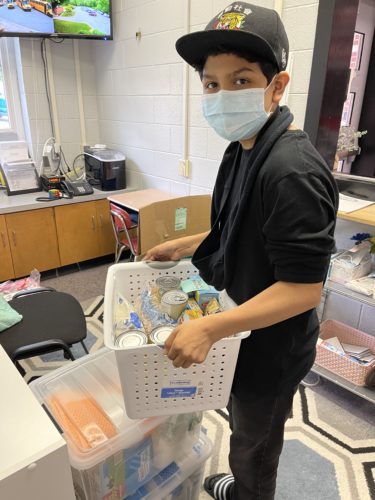As a sponsor or donor with Children Incorporated, it is likely that at some time you have communicated with our Sponsorship Director, Steve Mitchell, whether by email, on the phone, or even by mail.
Steve is an incredibly dedicated member of the Children Incorporated family, who plays a crucial role in making sure our sponsors feel a personal connection to our organization and the children they support.
“It’s been a great ride along the way for almost 24 years, and I have had the honor of working with some of the best, good-hearted people along the way.”
-Steve Mitchell
I spoke with Steve recently to ask him a few questions about his time with our organization to shed some light on this special person, and to show just how much he does for Children Incorporated, our staff, and our supporters beyond his role as Director.
SC: When did you first start at Children Incorporated?
SM: I started working at Children Incorporated on May 7, 1999.
SC: What was your first role with the organization?
SM: Mrs. Wood, the founder for Children Incorporated, interviewed me and hired me the same day. I was shocked and grateful since I had four children and needed the work. I was told that I would be working in the mail and filing department.
SC: How has that role changed over time?
SM: Wow, my duties and job assignments have certainly changed over the years. After working a couple of years in the mail and filing department, I then had the privilege of working with Mrs. Renée Kube in the Appalachian region and then moving into the position of manager of the Native American division. After several years, I was asked to be the sponsorship manager for the international division of Children Incorporated.
My most recent change was in December 2019 when our caring president, Mr. Ron Carter, asked if I would oversee the entire USA and International sponsorship department as Sponsorship Director when my colleague, Mr. Chuck Smith, moved into retirement. So, yes, it’s been a great ride for almost 24 years, and I have had the honor of working with some of the best, good-hearted people along the way.
SC: What is a day in the office like for you?

Upon completion of of our newly renovated office, our staff dedicated the building to Steve thanks to all his hard work.
SM: A day in the office….honestly, it changes constantly. Since I also oversee the maintenance and oversight of our office building, sometimes I may be investigating why the phone system isn’t working to shoveling snow in the winter months off the front steps and walkway. However, a “typical” day would be addressing the emails from the sponsors and donors along with assisting with any issues the sponsorship team members may bring to my attention. Time flies when you’re having fun!
SC: What is the most rewarding aspect of working with Children Incorporated?
SM: There are several, but I would have to say when we purchased our current location right outside of Richmond, Virginia. With the good leadership of our president securing a great price for the building, we then had the daunting task of renovating the almost 6,000 sq. ft. building with three floors.
Our deadline was just under three months and with the help of all staff pulling carpets to painting walls, along with hiring a few needed contractors for the larger tasks such as replacing the worn-out HVAC systems, we met our goal and moved in on time. It was a great achievement for all the staff. It was rewarding indeed.
SC: What is one of the most challenging parts of your job?
SM: Probably having to handle some of the building maintenance work. Finding a loose wire in a wall can be difficult, but we work through this as well. I have a great counterpart, Mr. Chuck Smith, who assists me as we tackle these issues.
SC: What is one of your fondest memories of your time with the organization?
SM: When I look back, I still remember having some really great conversations and hearty laughs with our founder, Mrs. Wood. I still miss talking with her and learning from her. Another incredible person I had the privilege of learning from and getting to know.
SC: What do you enjoy doing when you are not at the office?
SM: That’s an easy one. Enjoying time with my wife and family. I also really enjoy traveling with my dear wife of 35 years. We love seeing the world and finding new places to visit. The world is a great place to see with the ones you love!
***
How do I sponsor a child with Children Incorporated?
You can sponsor a child with Children Incorporated in one of three ways: call our office at 1-800-538-5381 and speak with one of our staff members; email us at sponsorship@children-inc.org; or go online to our sponsorship portal, create an account, and search for a child that is available for sponsorship.

